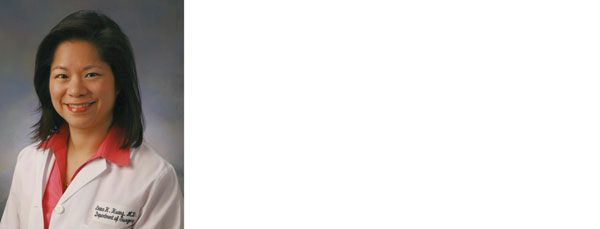Extracts

Surgeon Studying Link Between Colitis And Colon Cancer
By Laura Mize
Emina Huang, an associate professor of surgery in the College of Medicine, has received a $1.52 million grant from the National Institutes of Health to fund her research into the origins of colon cancer.
The five-year grant will allow Huang to investigate whether “there’s a way to prevent the progression from benign ulcerative colitis to cancer,” she said.
“We asked the question: Are tumor-initiating cells present in ulcerative colitis?” said Huang. “We found the answer is ‘yes,’ and we’ve been able to identify those and work with them.”
Approximately 700,000 people have colitis in the United States, according to the Crohn’s & Colitis Foundation of America. The National Cancer Institute estimates that cancer of the colon and rectum will claim the lives of about 50,000 people this year.
“Prolonged inflammation due to colitis has been shown to contribute to the development of colon cancer and we are looking at the mechanisms involved in this process,” said Elizabeth Butterworth, a biological scientist in the department.
Interleukin-8 is an immune system protein thought to contribute to cancer growth, and Butterworth said the team will examine cells affected with ulcerative colitis “to elucidate whether interleukin-8 plays a role in the number or type of divisions present in our samples.”
They also will generate and analyze cancer “stem” cell lines for proteins key to tumor development, and investigate how and why metastasis occurs. Cancer stem cells are those thought by some researchers to be responsible for the generation of new cancerous cells.
Robert C. Fisher, a research scientist in the Department of Surgery, said the team will examine “fundamental stem cell properties, including clonality and self-renewal, along with metastatic potential” to determine the role these cells may play in cancer development. The research could eventually allow doctors “to predict patients who will progress to cancer from benign disease” and to find ways to stop the change from happening in the first place, said Huang.